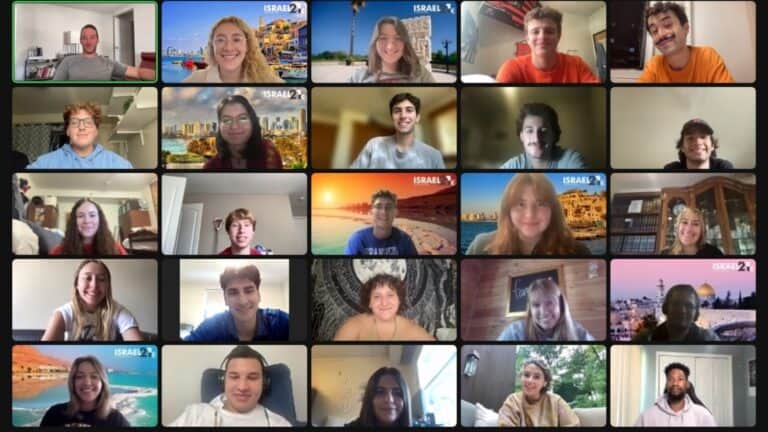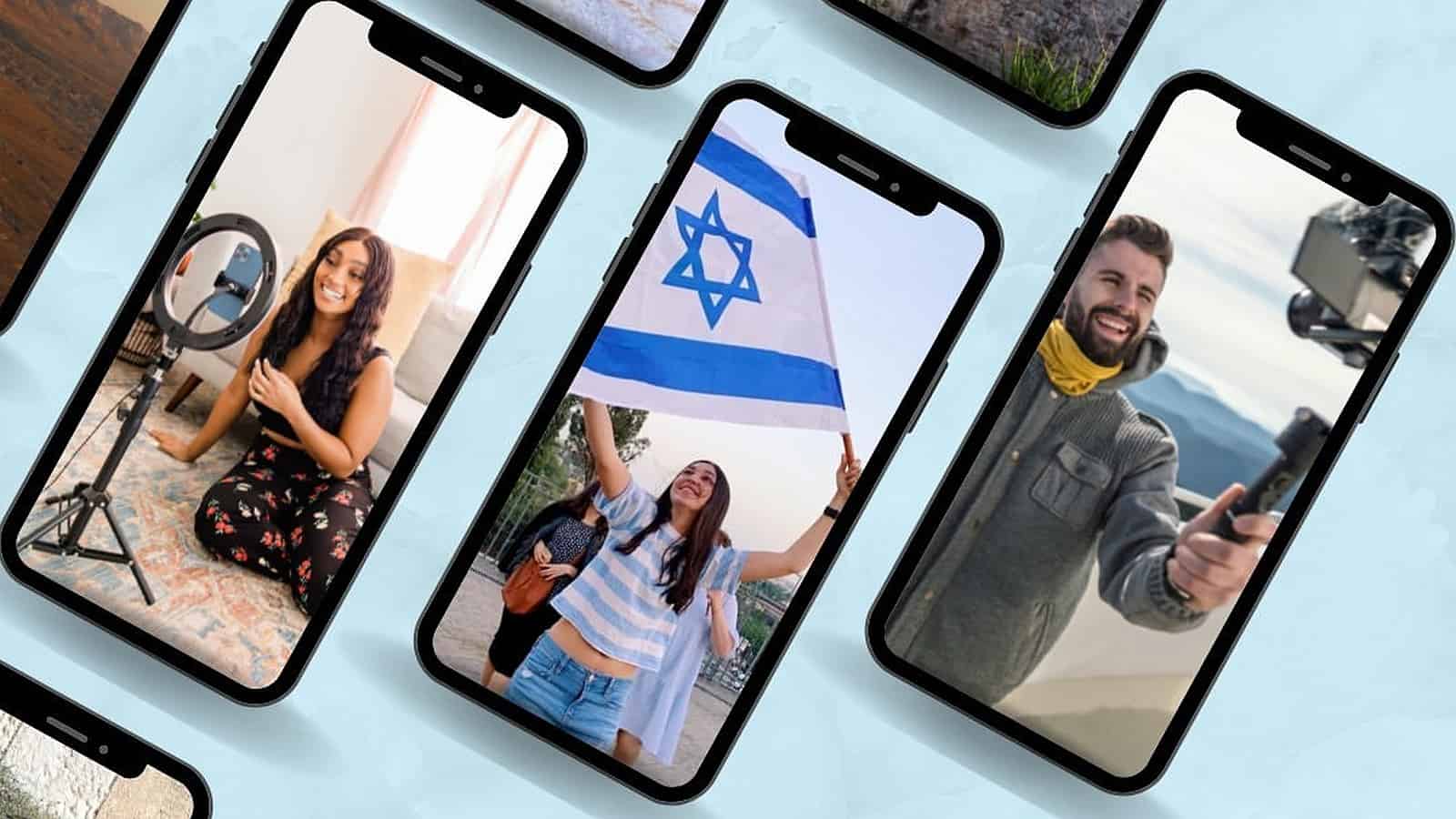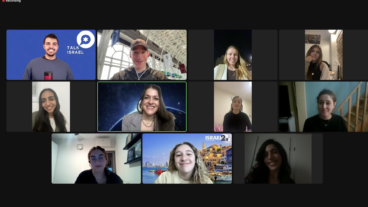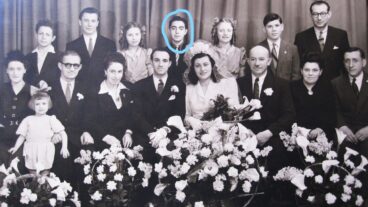In a heightened atmosphere of anti-Israel sentiment on American college campuses, can positive, apolitical Israel content win the hearts and minds of students? A new study finds strong evidence that it can, and does.
Ninety percent of respondents to a survey of nearly 400 North American young adults said they gained insight into Israeli society by viewing ISRAEL21c social-media posts, and 66% said the posts left them feeling more positive about Israeli society.
The market research project, titled “Using Social Media to Influence Opinion about Israel,” was created by Research Success Technologies in coordination with ISRAEL21c’s Digital Ambassadors Internship Program for college students.
Created by the Digital Ambassadors for their peers aged 18 to 25, the posts touched four categories: Instagrammable spots, amazing women, an ideal day in Tel Aviv and street art. This content is geared to introduce Israeli society to young adults from a relatable angle.
“Young people are looking for media that adds value to their lives. Working with college students, our team hears how Israel is typically presented on campuses and on social media—and it’s limited to a small cadre of people arguing about politics. It’s a turn-off, and most people choose to disengage entirely,” said Jason Harris, Executive Director of ISRAEL21c.
“For many in this younger generation, all they’ve heard about Israel is conflict, and that’s what we need to change. College students are curious, and to address that curiosity, nonprofits, philanthropies, and media organizations need to present Israel in the context of something they find relevant and relatable. Once we come together and realize this, we can ignite informed, meaningful conversations that actually introduce the world to real Israelis, not caricatures.”
ISRAEL21c, a nonprofit news organization founded in 2001, breaks out of the confines of the media’s traditional depiction of Israel, and widens the lens on who Israelis are and what inspires, motivates, and challenges them.
When respondents were asked how ISRAEL21c social-media content affected them, 43% claimed to have gone to the ISRAEL21c website to read content created by on-the-ground journalists. And 30% noted that they shared the post with others or intended to do so.
‘I didn’t realize’
The Digital Ambassador Internship implements ISRAEL21c’s goal of reaching those who are unaware or under-educated about Israel, enabling them to connect in a personally meaningful manner.

Optional written feedback from survey respondents underlined the importance of this goal.
For example, one respondent commented, “I didn’t realize that Israel was allowed to have street art. I get them confused between Iran, Pakistan, etc. Geography is hard for me and I don’t really watch the news so I’m not up to date on the things that may be going on. But the art and cities are absolutely beautiful!!”
Amy Friedkin, Board President of ISRAEL21c, said the results of the survey “can be used as a blueprint for building bridges and illuminating who the Israeli people really are. The implications are far-reaching, and they will be a valuable asset for other organizations trying to determine how to best engage with young people around Israel.”
Harris said the peer-to-peer aspect of the Digital Ambassadors program is key.
“We empower the students to be creative and very experimental in seeing what will resonate with their age group. They know their market better than we do, and we should listen. The results teach us that we as professionals can do our job better by learning from college students.”
A unifying platform
Respondents to the survey were diverse regarding gender, religion and familiarity with Israel. More than half (52%) of respondents self-identified as non-Jewish.
However, the survey found that their reaction to the social content was influenced less by their personal attributes and more by the structure of the posts.
Complex posts with multiple images and explanatory text generated stronger feelings of learning and gaining insight into Israeli society. Simpler posts focused on an eye-catching image and idea garnered a stronger emotional response and positivity about Israeli society.
Harris said ISRAEL21c will apply these findings in a best practice guide for future Digital Ambassadors cohorts.
The organization, he said, “provides a unifying platform to educate, inform, and initiate meaningful conversations about the Israeli people and their positive impact on our world. Our mission is to bring an accurate, unbiased reflection of life in Israel to the global stage, free of charge.”
To view the full analysis and additional insights, download the report from Research Success Technologies here.
To read Jason Harris’s op-ed about the survey, published July 13 in the Jewish Journal, click here.

















